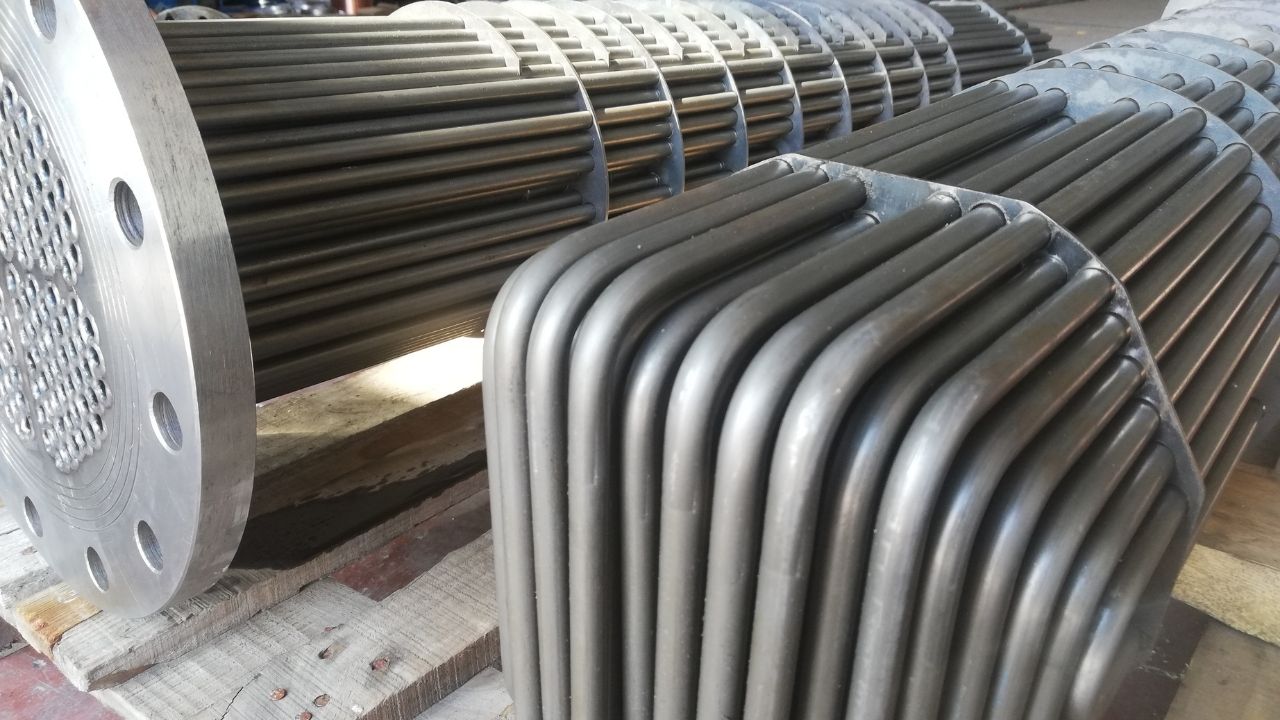Erk Proses engine jacket water cooling exchangers provide the effective cooling required by industrial engine systems. Optimize engine performance with their high quality and durable construction.
Engine jacket water cooling heat exchangers are devices used in an engine's jacket water system. Engine jacket water cooling heat exchangers are used to cool down or lower the temperature of the hot water generated in the engine's jacket water system. Engine jacket water cooling heat exchanger ensures efficient and safe operation of the engine by preventing removal of excessive heat of the hot water in the jacket water system of the engine. Additionally, when designed to match the engine's operating conditions, it can enhance energy efficiency.
The fluids used in engine jacket water cooling heat exchangers may vary depending on the engine's operating conditions, temperature and pressure requirements, materials used to prevent corrosion of metallic components, and specific application.

Typically, fluids such as water, oil, antifreeze, and other similar substances can be used. Additionally, chemical properties of the fluids in the engine jacket water system may contain oils or additives. While various fluids can be used, selecting the most suitable one enhances the efficiency, durability, and long-term performance of the exchanger.
When designing an engine jacket water heat exchanger, the following factors should be taken into consideration:
- Fluid properties: Characteristics such as temperature, viscosity, density, specific heat, corrosion potential, and similar properties of the fluid.
- Pressure requirements: The pressure values necessary for operation of the exchanger and the design features required to achieve those values.
- Heat transfer: Design features necessary for efficient heat transfer by the exchanger.
- Dimensions: Proper dimensions of the exchanger suitable for the engine jacket water system and required connection features based on the application.
- Material selection: Choosing corrosion-resistant and appropriate materials to enhance the
exchanger's long-term durability.
- Operating conditions: Conditions of operation including temperature range, mechanical load, and other relevant factors.
By taking these factors into account, it is possible to ensure efficient, safe, and long-term
performance of the engine jacket water exchanger.

Materials used for engine jacket water cooling heat exchangers can vary based on the engine's operating conditions, temperature, pressure, and corrosion requirements.
However, generally the following materials are used:
- Non-Alloy Steel: Durable, cost-effective, and commonly used materials.
- Copper and Alloys: They have good heat transfer properties and are corrosion-resistant.
- Stainless Steel: They have excellent resistance to corrosion and can be used at high temperatures.
- Brass and Cupronickel: They are resistant to corrosion and have good heat transfer properties.
While these materials are commonly used, selecting the most appropriate material for each application enhances the efficiency, durability, and long-term performance of the exchanger. For more detailed information about engine jacket water cooling heat exchanger or to request a quote, you can contact us via the WhatsApp support line, our contact numbers, or by the quote request form available on our website.